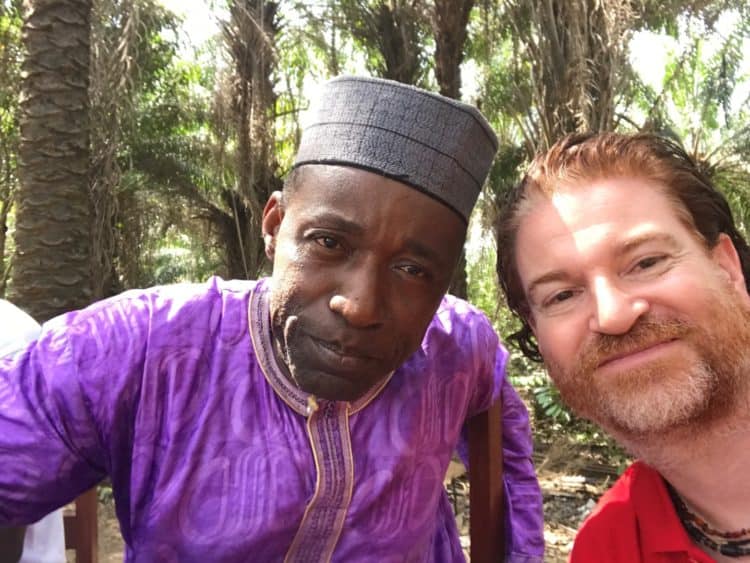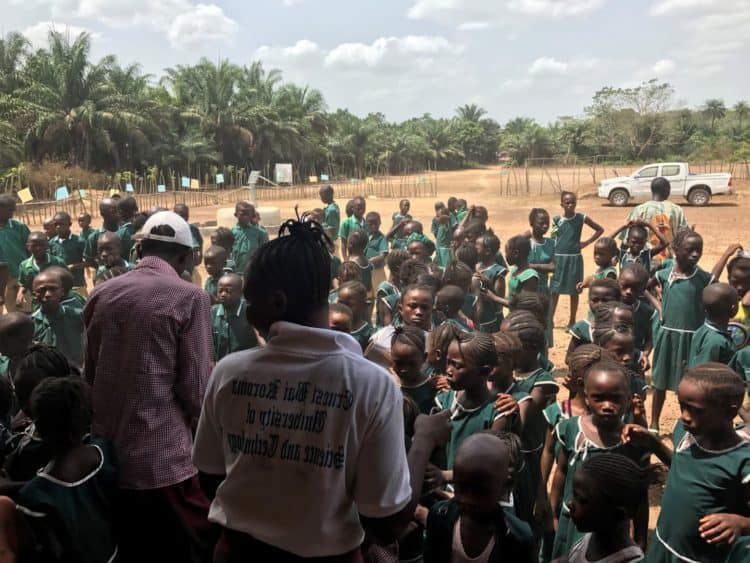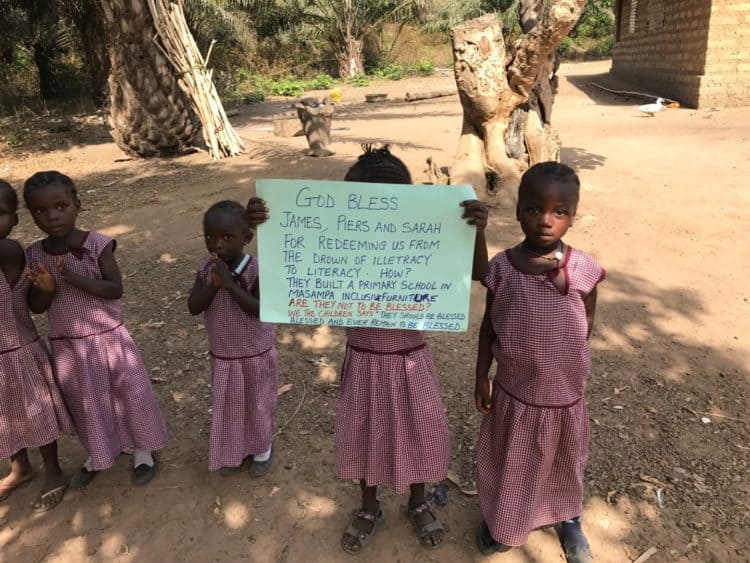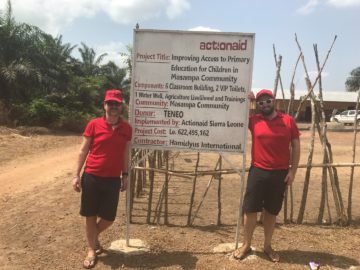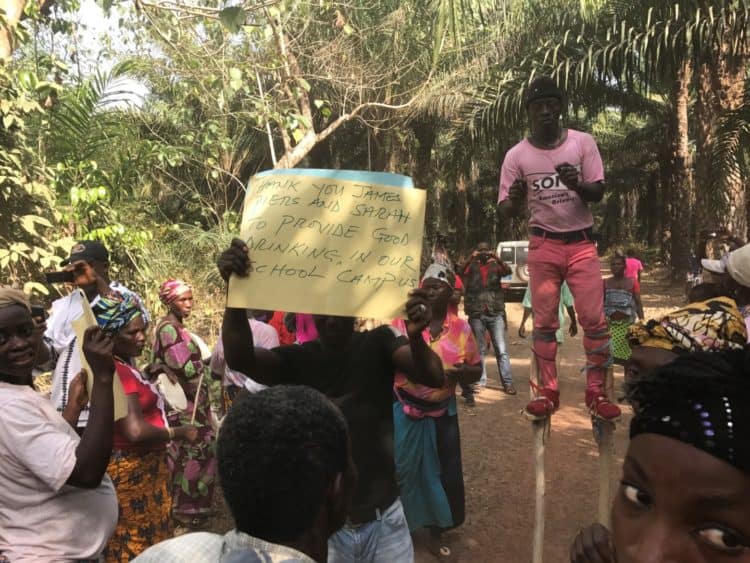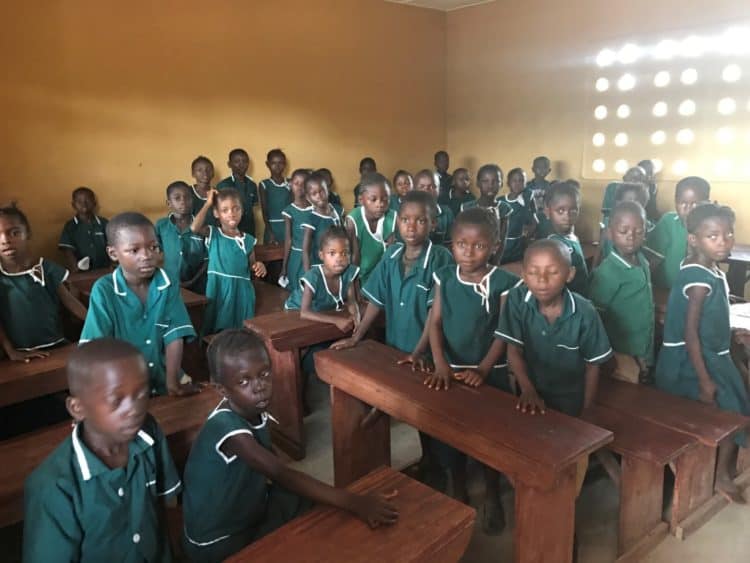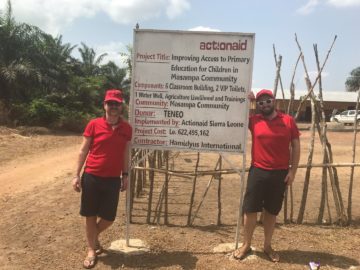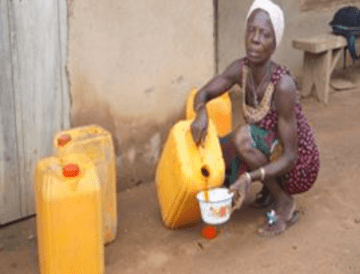Our major CSR project in 2015 began a year later than we originally anticipated. The start was delayed because of the devastating outbreak of Ebola in Sierra Leone. It wasn’t until the crisis was somewhat under control in the middle of 2015 that we could begin our project in the community of Masampa in earnest.
With the Ebola crisis contained, the need for primary education became even more important. The impact of the Ebola outbreak had impacted the whole country, including the community of Masampa. It had affected education and livelihoods in the community.
This project was different to anything we’d done before. It was much more than a school build project. Like previous projects we intended to build a classroom block. This included toilets, a well and training for teachers and community members. But we also had the chance to work with the community in other ways. The project included livelihood enhancements, the chance to work with the women of the community.
One of the challenges of getting children to school in developing countries can be the reliance on them by their families. They often need them to work and contribute to the creation of their income. If they don’t, then they might not eat and when faced with that choice, it’s a more immediate concern than education. But if they don’t get an education they can never break the cycle of poverty.
With this project, we also gave training to women of Masampa on good farming practices. The goal was to help them become more productive. To do this we provided some agricultural machinery to help automate some of the tasks they were doing manually. In addition, the project provided some training on entrepreneurship and business skills.
We also had the opportunity to provide some small cash grants to help people set up new small businesses in Masampa. This will help them diversify from farming and increase their income. The goal of all these initiatives is to have the net result of making the families less reliant on their children needing to work. This then allows them the time to attend school.
Highlights of the Teneo & ActionAid project include:
- Building a new 6 classroom school and equipping it with furniture and learning materials.
- Providing 40 women with training on good farming practices. Equipping them with the skills and techniques to increase productivity.
- Providing single sex toilet blocks at the school. This gives increased security and privacy for the girls.
- Providing a water well for the community so they now have access to clean, safe water.
- 40 women have taken part in training on entrepreneurship and business skills. Providing cash grants to support them to set up their own small businesses.
- 8 members of the School Management Committee (SMC) including 3 women have received training in school management. The management of the new school was handed over to the committee in 2016



